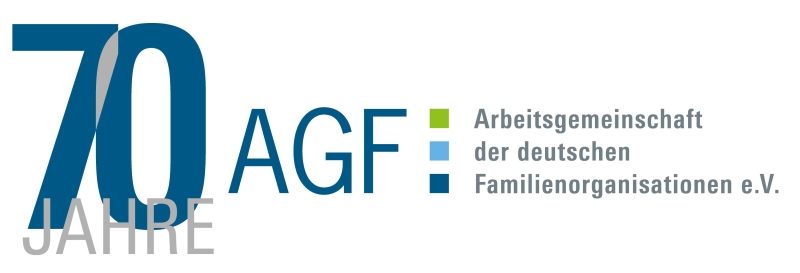[14. 3. 2012] The Association of the German family organizations supports the purpose of the 8th Family Report published today by German Government, to establish the solution to family time conflicts as a social task. Unfortunately, the report has a rather weak effect in light of the political cut back guidelines, major reservations concerning the federal policy as well as the impulse generator of work.
“Families are particularly exposed to the different time structures of the everyday institutions such as employers, schools or daycare. They need targeted and reliable support, “according to the chairman of the AGF, Bettina Müller-Sidibé, “nevertheless; many families are left to deal with their problems concerning time on their own. The 8th Family Report clearly recognises this, but almost completely relieves the federal government from their responsibility”. Ms. Müller-Sidibé added that, on the contrary, the report refers to the voluntary commitment of the older generation, the social partners and to the financially weak municipalities that are already exercising restraint in regard to the current extension of kindergarden services.
Although families prove every single day anew how competent they are in dealing with time constraints, the Commission asks for increased time competency from families. From the perspective of the family associations, the Commission, on the whole, does not search enough for good overall frameworks for solving the time conflicts of families, but rather for the lowest cost solutions. The Commission’s recommendations – to increase time-competency, the lending of time, the saving up of time accounts – remind us partially, but nevertheless, very much of Momo’s gray men from the “time bank” book.
The family oganisations united within the AGF also see some good points in the family report, such as the demand-based development of quality childcare or the necessary family orientation of the labor legislation. However, they often lack determination. According to the family organisations, further recommendations would be desirable, particularly in view of the metronome world of work.
The fact that this is absent also lies within the principle of the Commission, to make recommendations that are as cost neutral as possible for companies. From the AGF’s perspective, this type of priority setting for a family report is disconcerting. “It cannot always be a case of families having to arrange themselves according to the time requirements of businesses, day care, opening hours etc.”, explains Bettina Müller-Sidibé. “Instead, the perspective must be urgently changed and the families must be moved into the centre of focus”.
